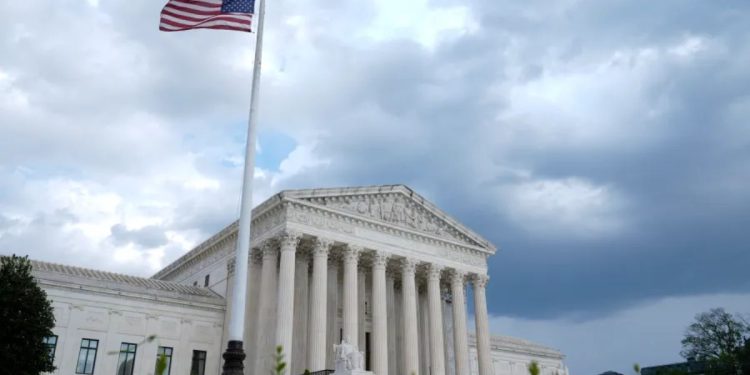The Supreme Court on Monday opened the door to fresh, broad challenges to regulations even after they go into effect, dealing government agencies a third blow in a week.
The justices ruled 6-3 in favor of a North Dakota truck stop seeking to sue over a debit card swipe charge regulation upheld by a federal appeals court in Washington ten years ago.
Federal law mandates the filing of broad regulatory challenges within six years. The Federal Reserve’s law governing the fees retailers must pay banks when customers use debit cards came into force in 2011.
The Biden administration stated that the deadline for lawsuits over the policy was in 2017. A federal appeals court ruled that Corner Post, a truck stop in Watford City, western North Dakota, filed its lawsuit too late, despite the fact that it did not open its doors until 2018.
The corporation filed an appeal with the Supreme Court. The administration had urged the court to uphold the dismissal, arguing that otherwise, federal institutions would face perpetual litigation.
Justice Amy Coney Barrett wrote for the court’s conservative majority that Corner Post’s six-year clock did not start until it began accepting debit cards when it opened in 2018.
The decision may take on new significance in light of last week’s ruling, which overturned the 1984 Chevron decision, making it easier to enforce rules across a vast swath of American society. The court also stripped the Securities and Exchange Commission of a key weapon for combating securities fraud.
“The tsunami of lawsuits against agencies that the Court’s holdings in this case and Loper Bright have authorized has the potential to devastate the functioning of the Federal Government,” Justice Ketanji Brown Jackson, a liberal colleague, stated in a dissent. Loper Bright was the case that reversed Chevron.
Barrett found Jackson’s argument “baffling—iindeed, bizarre,” but agreed with Jackson that Congress might intervene to adjust the timeline for contesting rules.
Dan Jarcho, a former Justice Department lawyer who has been monitoring the issue, expected that parties such as Corner Post would win more cases after this term’s findings. “Combined with last week’s decision eliminating Chevron deference, the Corner Post decision will unquestionably lead to more successful litigation challenges to federal regulations, no matter which agency issued them,” Jarcho observed.
Chief Justice John Roberts summarized the court’s predicament during the Corner Post case hearing in February. Agencies may face recurrent issues “10 years later, 20 years later” and “sort of have to create the universe, you know, repeatedly.”
On the other side of the coin, Roberts stated, “You have an individual or an entity that is harmed by something the government is doing, and you’re saying, well, that’s just too bad; you can’t do anything about it because other people had six years to do something about it.”
According to Roberts, the legal principle that everyone has a right to a day in court “doesn’t apply unless somebody else has a day in court.”
Roberts was a member of Monday’s majority.










